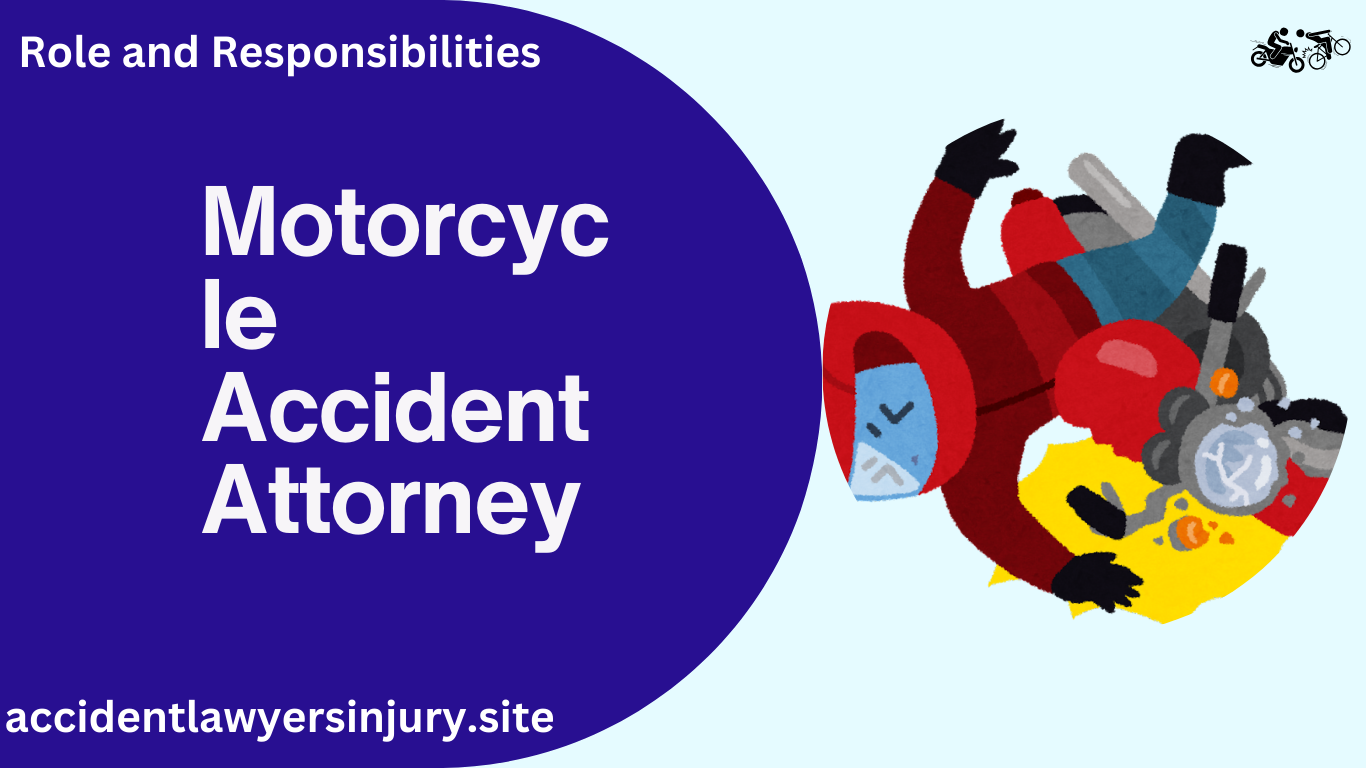Motorcycle Accident Attorney
Legal counsel for victims of motorcycle accidents is the area of expertise for a motorcycle accident attorney. Their assistance is essential in guiding clients through the intricacies of insurance claims, negotiating settlements, and, if required, taking legal action to recover losses and injuries sustained in the collision.
Role and Responsibilities
Motorcycle accident attorneys undertake several key responsibilities to ensure their clients’ interests are protected and they receive fair compensation:
Initial Consultation and Case Evaluation:
The first meeting between the client and the lawyer is to go over the specifics of the motorbike accident. They collect data regarding the event, any injuries received, and any damages incurred. The lawyer can evaluate the case’s strength and choose the appropriate line of action with the assistance of this initial session.
Investigation:
Attorneys for motorcycle accidents look at the accident’s details in great detail after the initial meeting. Getting police reports, speaking with witnesses, reviewing medical data, and estimating property damage are all part of this process. Acquiring proof is essential for proving fault and figuring out how much damage was done.
Legal Analysis and Strategy Development:
An attorney’s legal strategy is formulated based on the investigation’s results and is specific to the case. They assess relevant legislation and precedents to ascertain the best course of action for their client’s compensation pursuit. This could entail locating the guilty parties, which could include careless motorists, companies that provide faulty motorbike components, or organizations in charge of maintaining the roads.
Negotiation with Insurance Companies:
Lawyers for clients involved in motorcycle accidents frequently engage in negotiations with insurance companies. Lawyers utilize their expertise in insurance law and their ability to negotiate on behalf of clients to push for equitable settlements because insurance adjusters may try to reduce payouts. They make certain that the settlement negotiations take into account every facet of the client’s losses, such as lost income, medical expenses, property damage, and pain and suffering.
Litigation and Court Representation:
Motorcycle accident attorneys are ready to go to court if a just settlement cannot be negotiated. They present their client’s case before a judge and jury, file legal paperwork, and represent them in court. To bolster their client’s demand for payment, lawyers cross-examine witnesses, provide evidence, and make legal arguments during a trial.
Client Communication and Support:
Motorcycle accident lawyers keep in constant contact with and help their clients during the legal process. They answer any queries or issues that may come up, clarify legal changes and procedures, and keep customers updated on the status of their case. This guarantees that during the frequently intricate legal process, clients stay informed and in control.
Types of Cases Handled
Motorcycle accident attorneys handle a wide range of cases involving motorcycle collisions, including:
- Intersection Accidents. Collisions brought on by running red lights, failing to yield, or other moving offenses that happen at crossings.
- Lane Splitting Accidents: collisions that happen when motorcyclists try to pass other cars in neighboring lanes
Left-Turn Accidents: collisions that occur when cars turn left in front of approaching motorcycles.
- Rear-End Collisions: when a motorbike is struck from behind by a vehicle.
- Single-Vehicle Accidents: accidents brought on by unsafe roads, faulty motorcycle components, or other causes.
- Legal Principles and Challenges
- Cases involving motorcycle accidents are subject to the principles of negligence, which require establishing a number of crucial elements:
- Duty of Care: The plaintiff, the biker who was hurt, had a right to expect the defendant, who was usually the other driver, to drive their car safely and in accordance with the law..
- Breach of Duty: By carelessly moving at a high speed, failing to cede the right of way, or driving, the defendant violated this obligation.

